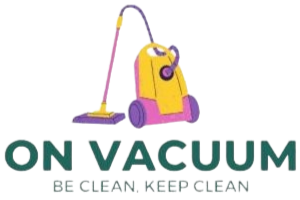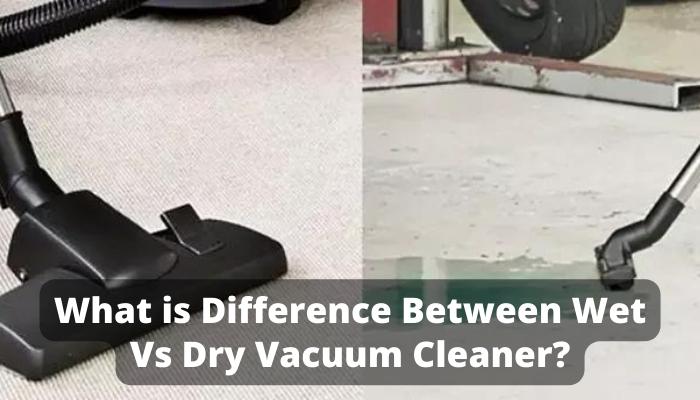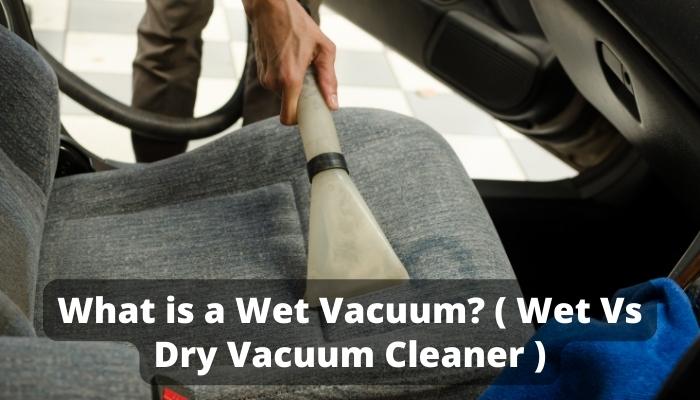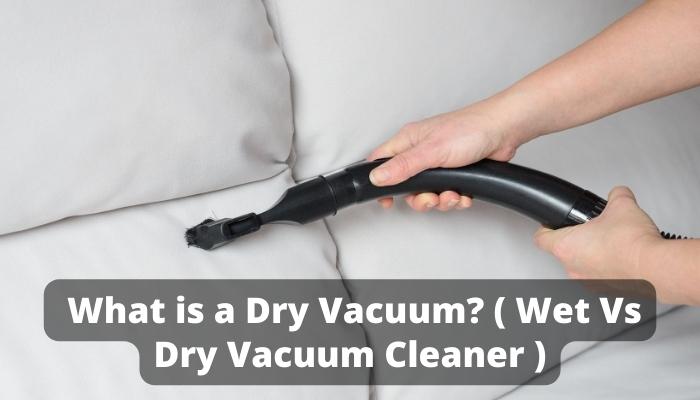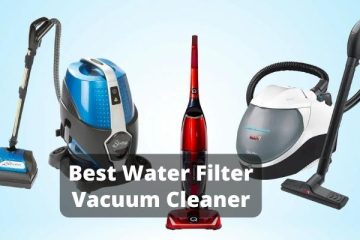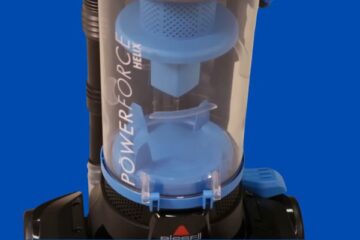Have you ever found yourself in a cleaning conundrum, debating whether a wet or dry vacuum cleaner is the right tool for the job? Well, you’re not alone. Wet and dry vacuum cleaners are versatile devices designed to tackle different messes, but understanding their distinct functionalities can be quite the puzzle.
Vacuum cleaners have come a long way since their inception, evolving from bulky, inefficient machines to the sleek, multifunctional devices we use today. In the realm of vacuum cleaners, the distinction between wet and dry variants is particularly significant, as each serves a unique purpose in our cleaning arsenal.
Wet Vacuum Cleaners
Wet vacuum cleaners are designed to tackle spills and stains that a regular vacuum would struggle with. They work by sucking up liquids and can often handle solid debris simultaneously. The main advantage of wet vacuum cleaners is their versatility in dealing with various messes. However, they require more maintenance than dry vacuums, as the internal components must be cleaned to prevent mold and odor.
Dry Vacuum Cleaners
On the flip side, dry vacuum cleaners are the standard tool for most households, excelling at picking up dry dirt and debris. They are generally lighter, easier to maneuver, and require less maintenance compared to their wet counterparts. The downside? They’re not equipped to handle liquids, which can damage the machine.
The Mechanics of Wet and Dry Vacuum Cleaners
How Wet Vacuum Cleaners Work
Wet vacuum cleaners are the go-to gadgets for spills and stains. They use water to trap dirt, which means they can clean up liquids without a hitch. But it’s not just about sucking up spills; these cleaners can also handle dry dirt, making them a dual-threat in the cleaning world.
How Dry Vacuum Cleaners Work
On the flip side, dry vacuum cleaners are your everyday heroes. They’re designed to pick up dry debris, dust, and dirt. With a bevy of attachments, they can get into nooks and crannies, keeping your living space spick and span.
Comparison of Mechanisms
While both types of cleaners have powerful suction, wet vacuums use water filtration systems, and dry vacuums rely on filters and dust bags. This fundamental difference affects their maintenance and suitability for various tasks.
Comparing Wet and Dry Vacuum Cleaners
When it comes to performance, wet vacuum cleaners offer a level of cleaning that dry vacuums cannot match for liquid messes. Dry vacuums, however, are more convenient for quick and regular cleaning tasks. The choice between the two often comes down to the specific needs of the environment they are used in. For instance, a home with pets and children might benefit more from a wet vacuum cleaner’s capabilities.
Advantages and Disadvantages
Benefits of Wet Vacuum Cleaners
Wet vacuum cleaners shine when dealing with liquid messes. They’re also great for deep cleaning carpets, as they can remove ingrained dirt and refresh fibers.
Drawbacks of Wet Vacuum Cleaners
However, they require more maintenance. After each use, you’ll need to empty and clean the water tank to prevent mold and mildew.
Benefits of Dry Vacuum Cleaners
Dry vacuum cleaners are low-maintenance and easy to use. They’re perfect for quick clean-ups and regular maintenance of your home.
Drawbacks of Dry Vacuum Cleaners
But when it comes to liquid messes, they fall short. Using a dry vacuum to clean up a spill could damage the machine.
Factors to Consider When Choosing
Cleaning Needs
Consider the types of messes you commonly face. If you’re prone to spills or have pets and children, a wet vacuum might be more up your alley.
Space and Storage
Wet vacuums tend to be bulkier, so think about your storage space. If you’re tight on room, a compact dry vacuum could be the way to go.
Budget Considerations
Wet vacuums can be pricier, but if they match your cleaning needs, they might be worth the investment.
User Experiences and Recommendations
Reddit users often praise the versatility of wet vacuums for comprehensive cleaning, while Quora experts recommend dry vacuums for ease of use and quick clean-ups.
Final Thoughts
In the battle of wet vs. dry vacuum cleaners, the winner depends on your specific cleaning needs. Assess your situation, consider the pros and cons, and choose the vacuum that will make your cleaning routine a breeze.
Choosing between a wet and dry vacuum cleaner ultimately depends on your cleaning needs. Wet vacuums are indispensable for dealing with liquid messes, while dry vacuums are ideal for everyday cleaning. By understanding the strengths and limitations of each, you can make an informed decision that keeps your space spotless.
FAQs
Can I use a wet vacuum cleaner on hardwood floors?
Yes, but ensure it’s set to the appropriate mode and use caution with the amount of water.
Are dry vacuum cleaners better for people with allergies?
They can be, especially models with HEPA filters that trap fine particles.
How often should I clean the filter in my dry vacuum?
Check the manufacturer’s guidelines, but generally, it’s after every few uses.
Can wet vacuum cleaners handle large debris?
They can, but it’s best to pick up larger pieces manually to avoid clogging.
Do wet vacuum cleaners use a lot of electricity?
They can be more energy-intensive, so consider this if you’re energy-conscious.
Can I use a dry vacuum cleaner to pick up liquids?
No, using a dry vacuum cleaner to pick up liquids can cause damage to the motor and internal components.
Are wet vacuum cleaners suitable for all types of floors?
Wet vacuum cleaners can be used on a variety of floors, but it’s important to check the manufacturer’s instructions for any specific flooring recommendations.
How often should I clean my wet vacuum cleaner?
It’s best to clean your wet vacuum cleaner after each use to prevent mold growth and maintain optimal performance.
Can wet vacuum cleaners pick up solid debris?
Yes, most wet vacuum cleaners can pick up both liquids and solid debris.
Is there a significant price difference between wet and dry vacuum cleaners?
The price can vary widely based on the brand, model, and features of the vacuum cleaner. Generally, wet vacuum cleaners can be more expensive due to their added functionality.
